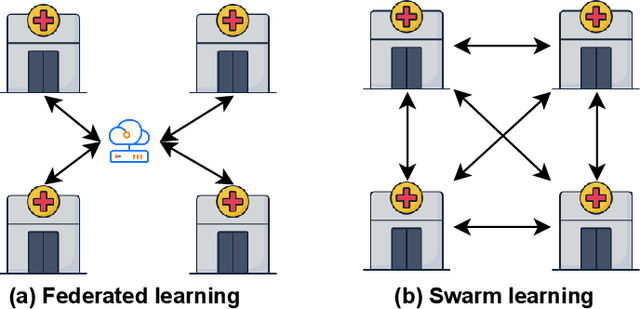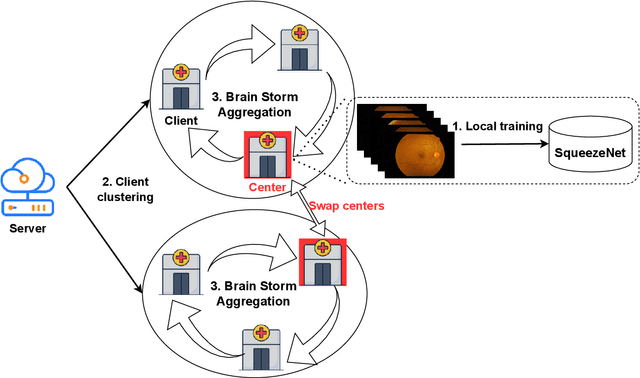Brain Storm Optimization Based Swarm Learning for Diabetic Retinopathy Image Classification
Paper and Code
Apr 24, 2024



The application of deep learning techniques to medical problems has garnered widespread research interest in recent years, such as applying convolutional neural networks to medical image classification tasks. However, data in the medical field is often highly private, preventing different hospitals from sharing data to train an accurate model. Federated learning, as a privacy-preserving machine learning architecture, has shown promising performance in balancing data privacy and model utility by keeping private data on the client's side and using a central server to coordinate a set of clients for model training through aggregating their uploaded model parameters. Yet, this architecture heavily relies on a trusted third-party server, which is challenging to achieve in real life. Swarm learning, as a specialized decentralized federated learning architecture that does not require a central server, utilizes blockchain technology to enable direct parameter exchanges between clients. However, the mining of blocks requires significant computational resources, limiting its scalability. To address this issue, this paper integrates the brain storm optimization algorithm into the swarm learning framework, named BSO-SL. This approach clusters similar clients into different groups based on their model distributions. Additionally, leveraging the architecture of BSO, clients are given the probability to engage in collaborative learning both within their cluster and with clients outside their cluster, preventing the model from converging to local optima. The proposed method has been validated on a real-world diabetic retinopathy image classification dataset, and the experimental results demonstrate the effectiveness of the proposed approach.
 Add to Chrome
Add to Chrome Add to Firefox
Add to Firefox Add to Edge
Add to Edge